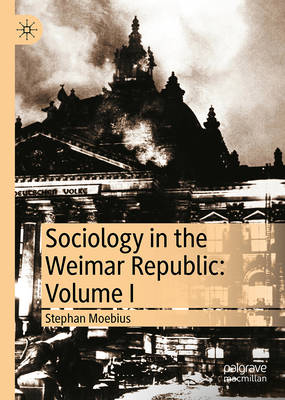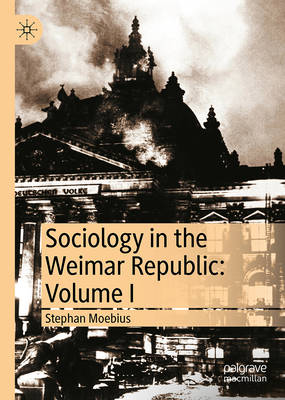
- Retrait gratuit dans votre magasin Club
- 7.000.000 titres dans notre catalogue
- Payer en toute sécurité
- Toujours un magasin près de chez vous
- Retrait gratuit dans votre magasin Club
- 7.000.0000 titres dans notre catalogue
- Payer en toute sécurité
- Toujours un magasin près de chez vous
244,45 €
+ 488 points
Description
This book -- a two-volume work -- reexamines the development of sociology during the Weimar Republic, characterising it as a period of remarkable theoretical, institutional, and disciplinary vitality. Contrary to conventional assumptions, sociology experienced a dynamic phase of professionalisation and differentiation during this period, establishing itself both as an academic discipline and as a practice of societal self-reflection in a time of economic, political, social, and cultural upheaval. By engaging with the crises of democracy, capitalism, new media, modernity, relativism, intellectual life, and identity, sociology came to play a crucial orienting role within Weimar society. The professional self-examination of modern society that this initiated continues to yield valuable insights into how social and historical processes unfold in modern societies. As such, studying sociology during the Weimar period is not just of interest to historians of science; it remains highly relevant to anyone seeking to understand the dynamics and structures of contemporary modern societies. Volume 1 provides a thorough account of the development of sociology during the Weimar Republic--a period marked by rapid institutional expansion, theoretical innovation, and disciplinary consolidation within sociology. The book traces how sociology established itself as an autonomous academic field, with the formation of new university departments, professional associations, and vibrant centres of research and debate. Key figures and intellectual networks are examined in the context of wider socio-political change. The volume also considers the fate of German sociology under National Socialism and in exile, showing how forced migration not only disrupted developments at home but also facilitated the international dissemination and influence of Weimar-era ideas. Far from being marginal or fragmented, Weimar sociology is presented here as a dynamic and ambitious enterprise--one that played a formative role in shaping the discipline as we know it today.
Spécifications
Parties prenantes
- Auteur(s) :
- Editeur:
Contenu
- Nombre de pages :
- 244
- Langue:
- Anglais
Caractéristiques
- EAN:
- 9783032037756
- Date de parution :
- 12-11-25
- Format:
- Livre relié
- Format numérique:
- Genaaid
- Dimensions :
- 148 mm x 210 mm

Les avis
Nous publions uniquement les avis qui respectent les conditions requises. Consultez nos conditions pour les avis.






